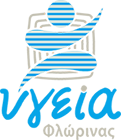-
05 FEB 15
Simple Examination
General Blood Test, ESR, Glucose, Urea, Creatinine, Uric Acid, Cholesterol, Triglycerides, γ-GT, SGOT, SGPT
In the basic check-up, we detect signs of pathology in the most common diseases and for the most important functions of the organism. The tests we perform are absolutely necessary for the initial assessment of the health and safety of an average individual, without indications of health problems, and without personal and family burdened medical history. The examinations are:
Complete Blood Count – CBC (21 parameters) – ESR (Erythrocyte Sedimentation Rate)
- A comprehensive assessment of the organism's haemodynamics is made with measurements of haematocrit (HCT), haemoglobin (HGB), red blood cells (RBC), and 4 auxiliary parameters (MCV, MCH, MCHC, RDW-CV). The examination reveals blood production as well as indications of anaemia from possible iron deficiency, vitamin deficiencies, or the presence of signs of Mediterranean anaemia, etc
- The total count of white blood cells of the immune system is measured. Furthermore, we examine the proportion of white blood cell subpopulations (polymorphonuclear, lymphocytes, large mononuclear, eosinophils), and assess the readiness or not of the immune system against possible infections or organism damage, as well as the presence of allergies, or pathological bone marrow diseases.
- Platelet count, responsible for blood clotting, provides additional information about possible infection or chronic inflammation (e.g., smoking), as well as possible disorders in blood clotting (e.g., thrombophilia).
- ESR measurement is performed to monitor the possible activation of the immune system due to chronic inflammations and diseases of the body, in order to conduct further examinations if necessary.
Fasting Blood Sugar (Glucose) / 2-hour Postprandial Sugar
By measuring sugar levels after a twelve-hour fasting period, we assess the potential presence of diabetes.
However, in cases where sugar levels have previously been slightly above the upper limit or slightly below the lower limit, instead of fasting blood sugar, we recommend the 2-hour postprandial sugar test. Sugar levels are measured 2 hours after a carbohydrate-rich breakfast (please inquire us for details). This method reveals the body's dynamic ability to metabolize sugar, exposing an individual's predisposition to diabetes. The test somewhat approximates the sugar curve and is particularly recommended for individuals with a family history of diabetes, obesity, or prolonged stress.
Urea-Creatinine: Assessment of renal function
Uric Acid (Uric acid)
It is the primary indicator for rheumatoid arthritis (necessary examination in cases of joint and arthritis pain), but it is also used as an indicator of joint wear, especially in athletes. The examination detects hyperuricemia and gout and is further utilised if needed for regulating dietary habits with foods low in uric acid.
Cholesterol (Chol) and Triglycerides (Trig)
These are the basic lipids - among many others - measured in blood to detect possible dyslipidaemia, which may arise from endogenous reasons or from poor diet. The value of early detection and correction or treatment of dyslipidaemia is for reducing the risk of cardiovascular diseases due to cholesterol and lipids in general (myocardial infarction, stroke, etc.).
Hepatic Transaminase Enzymes (AST/ALT) and γ-GT
By simultaneously measuring all three analyses, the health of liver function is checked, and possible liver burden from alcohol consumption or medications, as well as from overeating or fatty infiltration, is assessed.
Indirectly, these examinations can indicate infectious diseases such as hepatitis B and C (sexually and iatrogenically transmitted), so that appropriate medical treatments and precautions can be given immediately.
Indirectly, these examinations can indicate infectious diseases such as hepatitis B and C (sexually and iatrogenically transmitted), so that appropriate medical treatments and precautions can be given immediately.
As preparation for the morning blood test and examination, the following are recommended:
- A meal must be consumed the previous evening.
– The last meal should be consumed up to 11-12 hours before blood sampling.
- The evening meal should contain the least possible animal fats (if it includes cheeses, fatty dairy products, and meats).
- In the morning, only coffee and a piece of toast should be consumed, with free water intake.-
Σχετικές εξετάσεις
-

Simple Examination
General Blood Test, ESR, Glucose, Urea, Creatinine, Uric Acid, Cholesterol, Triglycerides, γ-GT, SGOT, SGPT
-

Basic Check-up
Complete Blood Count (CBC), Erythrocyte Sedimentation Rate (ESR), C-Reactive Protein (CRP), Glucose, Urea, Creatinine, Uric Acid, Potassium, Sodium, Cholesterol, HDL, LDL, Atherogenic Index, Triglycerides, Total Lipids, Gamma-Glutamyl Transferase (γ-GT), Transaminases, General Urine Analysis
-

Basic Check-up for Children aged 3-13
The Basic Checkup and additional tests for IgE, iron, ferritin, ASTO (Anti-Streptolysin O), Lipoprotein Lp-α, and homocysteine
-

Examination for Men aged 18-40
Basic Check-up + Homocysteine, Lp(a), Fibrinogen, CK, HBsAg, anti-HIV
-

Examination for Men aged 40-70
Men’s Check-Up 18-40 + PSA, PLAC test, CEA, aFP, CA19-9, Testo, free-Testo
-

Examination for Men > 70
Basic Check-up + Na, K, Ca, P, Mg, TP, Alb, Glob, Vit B12, Folic Acid, PSA, fPSA, T3, fT4, TSH, CEA, aFP, CA19-9
-

Examination for Women > 70
Basic Check-up + Na, K, Fe, Ferritin, Ca, P, Mg, TP, Alb, Glob, B12, Folate, TSH, CEA, AFP, CA 19-9
-

Examination for Women in Menopause
Basic Check-up + Fe, Ferr, Ca, 24-hour urine Ca, 2-hour urine NTx, PTH, Vit D3- 25(OH), T3, freeT4, TSH, anti-TPO/TG, CEA, CA 125, CA 15.3, CA 19.9
-

Examination for Young Women
Complete Blood Count (CBC) Thyroid Function Tests (T3, fT4, TSH) Iron (Fe) and Ferritin (Ferr) Calcium (Ca) Anti-Thyroid Peroxidase Antibodies (anti- TPO) and Anti-Thyroglobulin Antibodies (anti-TG) CA-125 Prolactin (PRL) CA 15-3 Vaginal cultures HBsAg Anti-HIV





